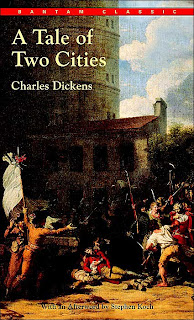 What can I say about Jodi Picoult's newest installment? The woman knows her formula. She knows what her readers want, she knows the types of characters and the types of gut-wrenching situations. Picoult knows to hold a little back until the end, just to keep you reading as fast as you can. I blazed through this one just to find out the kicker, which in Jodi Picoult speak is a heart-wrenching confession from one of the characters that will have you shaking your head or crying or both.
What can I say about Jodi Picoult's newest installment? The woman knows her formula. She knows what her readers want, she knows the types of characters and the types of gut-wrenching situations. Picoult knows to hold a little back until the end, just to keep you reading as fast as you can. I blazed through this one just to find out the kicker, which in Jodi Picoult speak is a heart-wrenching confession from one of the characters that will have you shaking your head or crying or both.Nineteen Minutes is a bout a school shooting and it is creepy to read in the wake of the recent VTech shootings. It is a study of an incessantly bullied kid turned killer. The strange thing, though, is that you will sympathize with the shooter. Her depiction of high school is right on, and the things the popular kids do to the kid who shoots the school up are unbelievably cruel. It made me think back to my own high school days. There were definitely those kids that continually got picked on, but I guess that is just the way high school is. It can't be like Can't Buy Me Love, where Patrick Dempsey's character gives a great speech about treating everyone nicely and then gets to bask in the slow clap for his wise words. Life is just not that simple.
As for Picoult, I enjoy her books to an extent. The most prominent thing is their formulaic construction. She uses stock characters, and situations that are eerily similar. Reading Nineteen Minutes and The Pact so close together makes that very apparent. I would like to see her give us something new, something different. A novel where I can't describe the characters, the impending accidental love story, the messed up teens, and the 'shocking' confession that comes at the end. Surprise me.




